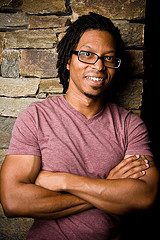An interview with Marian Szczepanski (fiction, ’97), in which she discusses her book, Playing St. Barbara, and her time in the Warren Wilson MFA Program, appears online at Late Last Night Books. Author and interviewer Terra Ziporyn writes:
Novelist Marian Szczepanski and I met at the Bread Loaf Writers Conference in the summer of 1993. We recently reconnected through a mutual Facebook friend who had just reviewed Marian’s new (and first!) novel, Playing St. Barbara. Marian was gracious enough to catch me up on the missing twenty years, including how she came to write this historical novel chronicling the brutal lives and enduring spirit of Depression-era immigrant coal-mining families in southwestern Pennsylvania.
TZ: When I first met you at Bread Loaf, you were working on young adult fiction. When and why did you shift form the young adult world to the world of historical fiction?
MS: At Bread Loaf, I had just started what turned out to be a coming-of-age novel for adult readers. At the time, YA lit was read almost exclusively by preteens. Hunger Games and Twilightwere years in the future. My first novel dealt with a variety of adult themes and contained scenes that would have gotten it onto the Banned Books list for school libraries in short order. When I first pitched it as a coming-of-age story to an agent, he was interested, but wanted me to tone it down and market it as YA lit. I decided against it and continued to pitch it as an adult novel. When I got the idea for the novel that became Playing St. Barbara, it appealed to me because I’d never written anything set in a time period different than my own. With each book, I like to do something different, add a few new gadgets to my writer’s toolbox. I’d done a coming-of-age novel, followed by one with a metaphysical theme. Writing something historically based struck me as a worthy challenge, and it more than lived up to that expectation!





